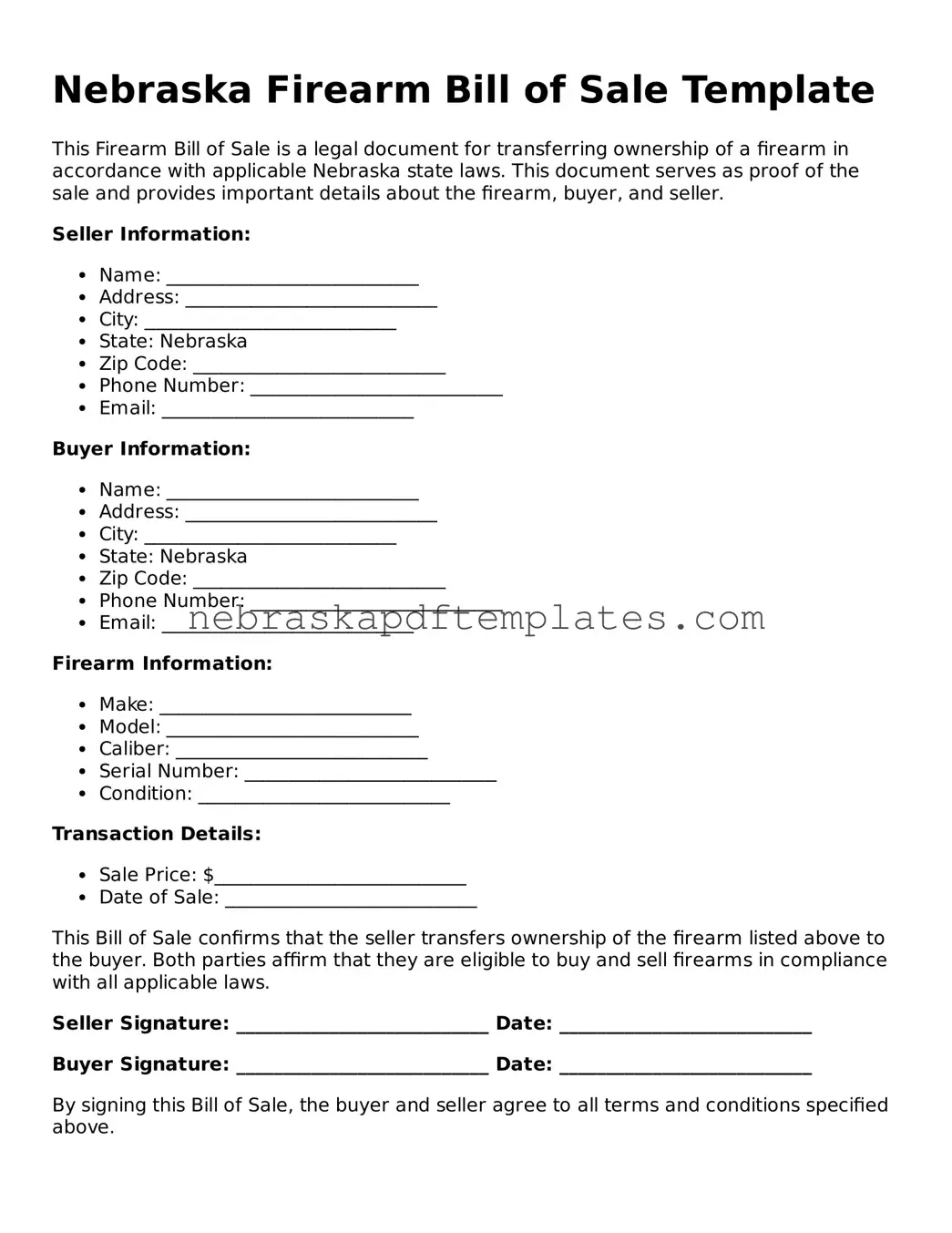Attorney-Verified Firearm Bill of Sale Document for Nebraska
The Nebraska Firearm Bill of Sale form is a legal document that records the transfer of ownership of a firearm from one individual to another within the state of Nebraska. This form serves to protect both the buyer and seller by providing proof of the transaction, ensuring compliance with state laws. Understanding how to properly fill out this form is essential for a smooth and lawful transfer of firearms.
Ready to complete your Firearm Bill of Sale? Click the button below to get started!
Access Editor Here

Attorney-Verified Firearm Bill of Sale Document for Nebraska
Access Editor Here
Finish your form now
Finalize Firearm Bill of Sale online — edit, save, and download effortlessly.
Access Editor Here
or
➤ Firearm Bill of Sale
